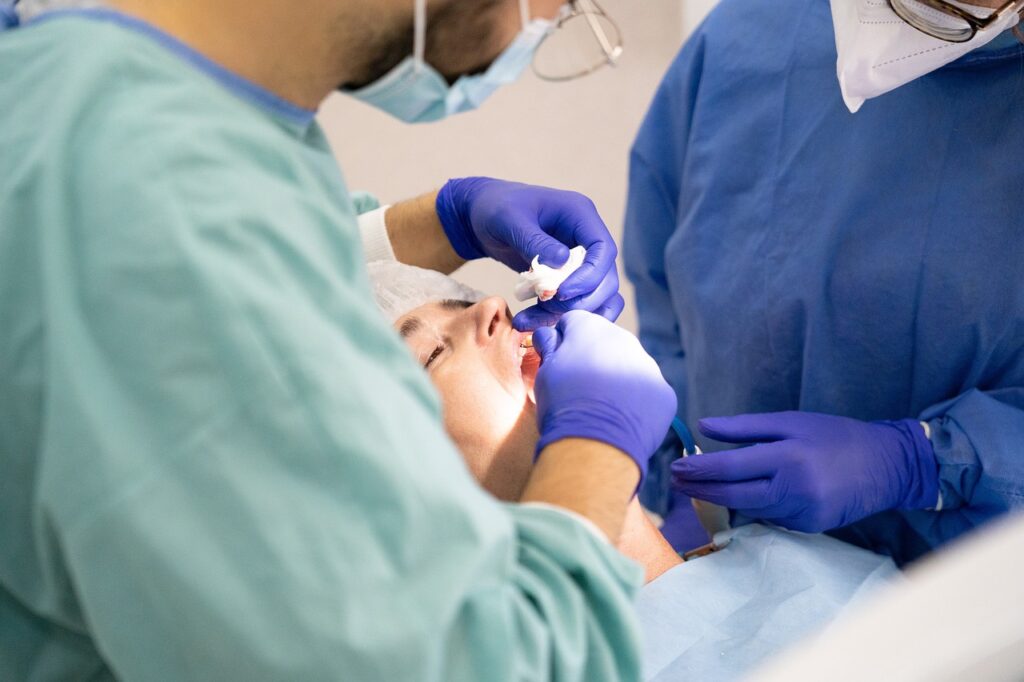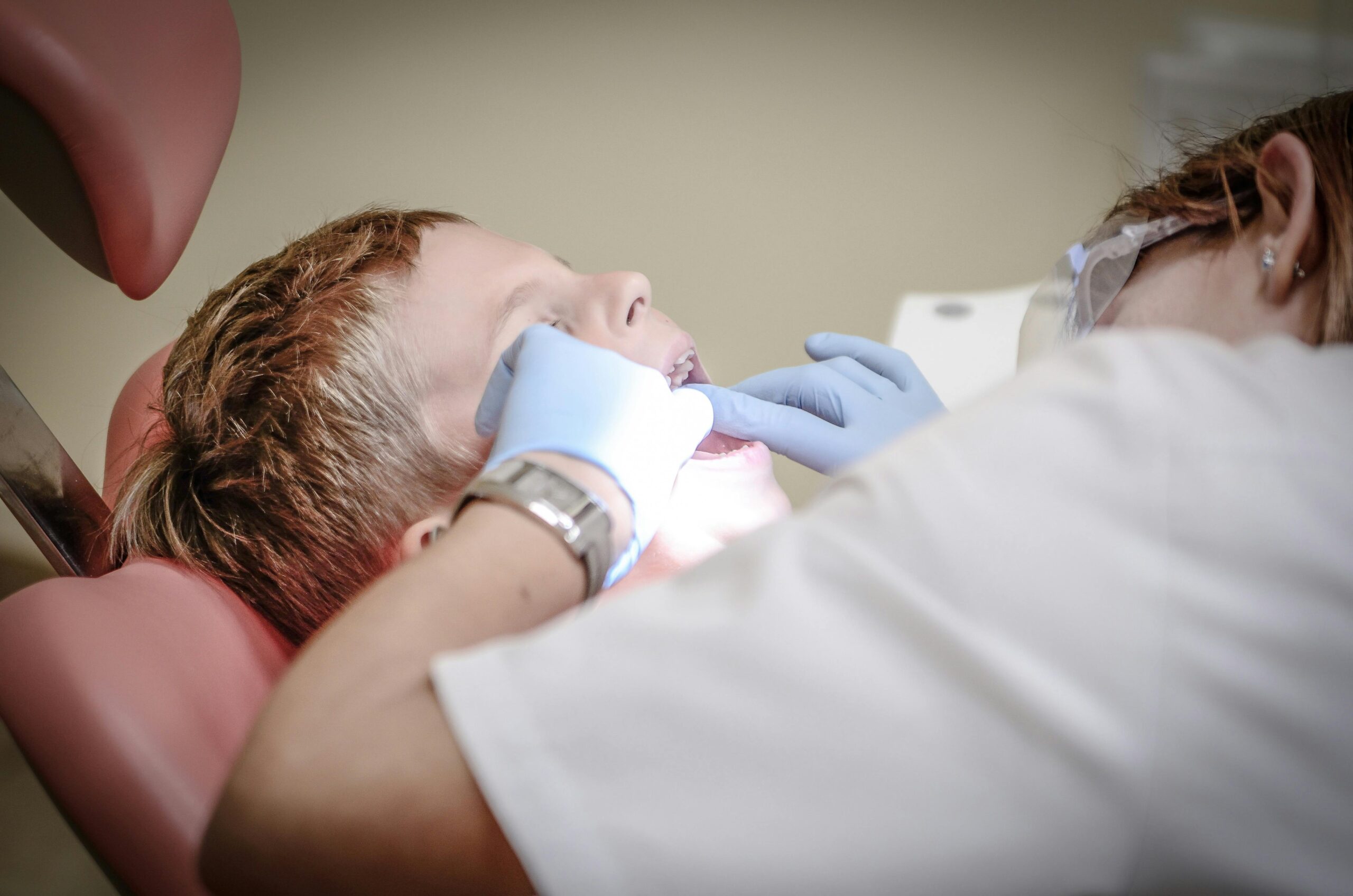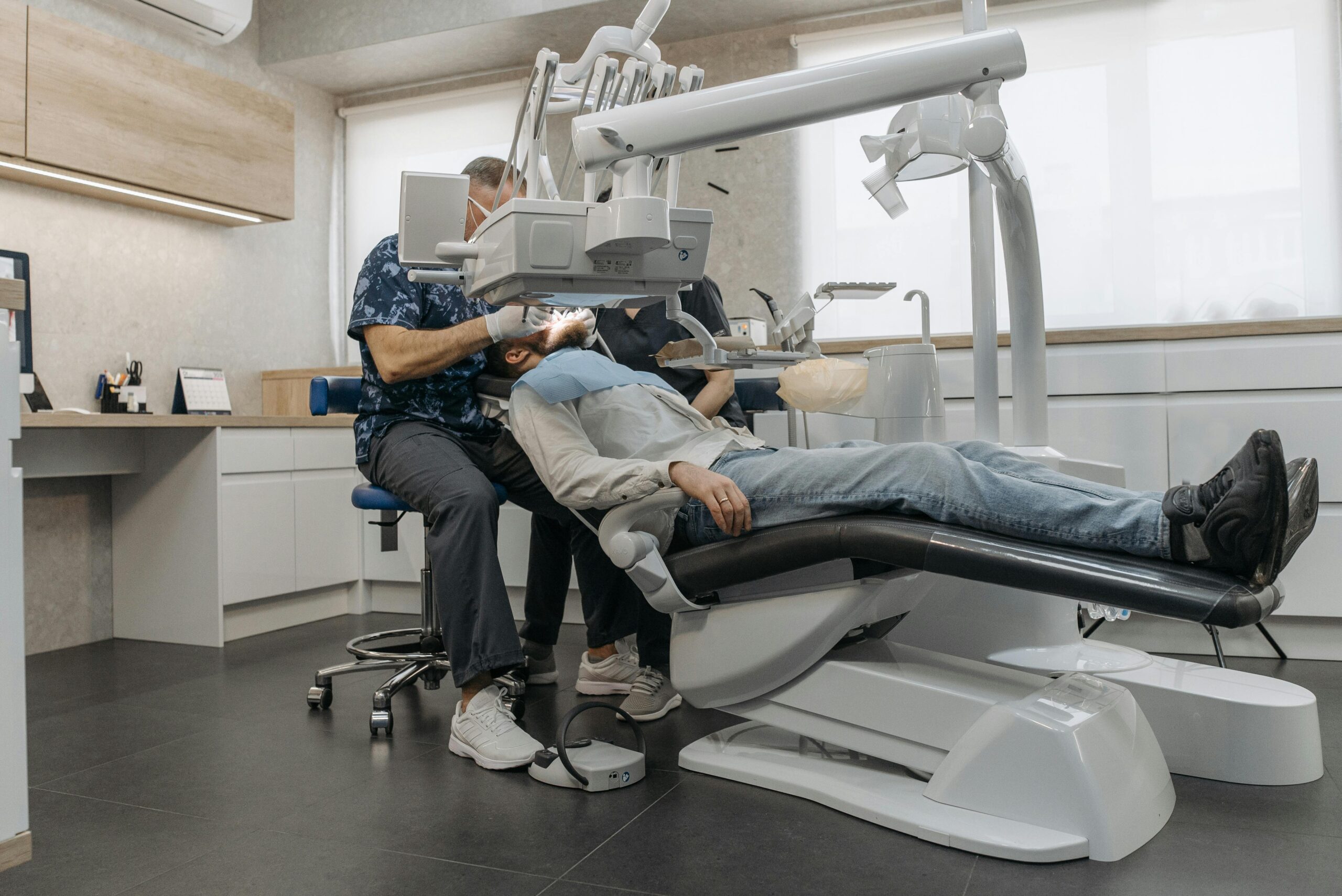How to become a Oral And Maxillofacial Surgeon: Complete Guide

Introduction
If you’re intrigued by the intersection of dentistry and surgery, this career path offers a fulfilling opportunity to make a difference in people’s lives. We’ll cover the educational requirements, training programs, and practical experience necessary to excel in this specialized field. Whether you’re considering a career change or just starting out, this guide will provide you with all the information you need to pursue a successful career as an Oral and Maxillofacial Surgeon.
Who is Oral And Maxillofacial Surgeon and what do Oral And Maxillofacial Surgeon do?
An Oral and Maxillofacial Surgeon is a dental specialist who specializes in treating conditions affecting the mouth, jaws, face, and neck. These surgeons are highly trained to perform a wide range of surgical procedures, including tooth extractions, dental implant placements, corrective jaw surgeries, facial trauma repair, and treatment of oral cancers. They work closely with dentists, orthodontists, and other medical professionals to provide comprehensive care for patients with complex dental and facial issues. Oral and Maxillofacial Surgeons often work in hospitals, dental clinics, or private practices, where they diagnose conditions, develop treatment plans, and perform surgical interventions to improve patients’ oral health and facial aesthetics.
– Performing tooth extractions, including impacted wisdom teeth.
– Placing dental implants to replace missing teeth.
– Correcting jaw deformities and malocclusions through orthognathic surgery.
– Treating facial trauma injuries, such as fractures or soft tissue damage.
– Performing reconstructive surgeries for congenital defects or facial deformities.
– Removing tumors or cysts from the jaws or oral cavity.
– Diagnosing and treating oral cancers.
– Providing emergency care for facial injuries or dental emergencies.
– Collaborating with other healthcare professionals, such as dentists, orthodontists, and plastic surgeons, to coordinate patient care.
– Educating patients about their treatment options and post-operative care instructions.
What are the educational qualifications required to become Oral And Maxillofacial Surgeon?
To become an Oral and Maxillofacial Surgeon, individuals must complete a comprehensive educational pathway, which typically includes the following qualifications:
- Bachelor’s Degree: As a first step, aspiring Oral and Maxillofacial Surgeons must earn a bachelor’s degree from an accredited college or university. While there is no specific major required, most individuals pursue a pre-medical or science-related major, such as biology, chemistry, or biochemistry. This undergraduate education provides the foundational knowledge in biology, chemistry, physics, and other relevant subjects needed for admission to dental school.
- Doctor of Dental Surgery (DDS) or Doctor of Dental Medicine (DMD) Degree: After completing a bachelor’s degree, individuals must enroll in and complete a Doctor of Dental Surgery (DDS) or Doctor of Dental Medicine (DMD) program at an accredited dental school. These programs typically last four years and provide intensive education and training in all aspects of general dentistry, including anatomy, physiology, pathology, pharmacology, and dental procedures. Students also gain clinical experience through supervised rotations in dental clinics and hospitals.
- Oral and Maxillofacial Surgery Residency: Following dental school graduation, aspiring Oral and Maxillofacial Surgeons must complete an intensive residency program in oral and maxillofacial surgery. These programs are typically hospital-based and last four to six years, depending on the specific program and country. During the residency, surgeons receive advanced training in surgical techniques, anesthesia administration, and the management of complex oral and facial conditions. Residents also participate in clinical rotations in various subspecialties, including orthognathic surgery, facial trauma, reconstructive surgery, and oral pathology.
- Board Certification (Optional): While not mandatory, many Oral and Maxillofacial Surgeons choose to pursue board certification through the American Board of Oral and Maxillofacial Surgery (ABOMS) or a similar certifying organization. Achieving board certification demonstrates a high level of expertise and competence in the field and may enhance job opportunities and earning potential. To become board-certified, surgeons must complete additional training and pass rigorous examinations covering all aspects of oral and maxillofacial surgery.
Overall, becoming an Oral and Maxillofacial Surgeon requires a significant investment of time and dedication to acquiring the necessary education, training, and licensure. However, for those passionate about surgical dentistry and facial reconstruction, it offers a rewarding and fulfilling career path.
Which licenses are required to become Oral And Maxillofacial Surgeon?
Upon completion of an oral and maxillofacial surgery residency program, individuals must obtain a license to practice dentistry and oral and maxillofacial surgery in their state or country. Licensure requirements vary but typically involve passing written and practical examinations administered by a state dental board or licensing agency.
Where do Oral And Maxillofacial Surgeon work?
Oral and Maxillofacial Surgeons work in a variety of settings within the healthcare industry. They are commonly found practicing in hospitals, dental clinics, or private practices specializing in oral and maxillofacial surgery. Additionally, Oral and Maxillofacial Surgeons may work in academic institutions, teaching hospitals, or research centers, where they may conduct research, train future surgeons, and provide specialized surgical care to patients. Some surgeons may also choose to work in outpatient surgical centers or ambulatory care facilities, performing a wide range of surgical procedures on an outpatient basis. Overall, Oral and Maxillofacial Surgeons play a vital role in providing surgical interventions to improve patients’ oral health and facial aesthetics.
How long does it take to become a Oral And Maxillofacial Surgeon?
Becoming an Oral and Maxillofacial Surgeon typically requires a minimum of 12 years of education and training beyond high school. This includes completing a bachelor’s degree (usually taking around four years), followed by four years of dental school to earn a Doctor of Dental Surgery (DDS) or Doctor of Dental Medicine (DMD) degree. After dental school, aspiring surgeons must complete a four to six-year oral and maxillofacial surgery residency program. Overall, the process to become an Oral and Maxillofacial Surgeon typically takes at least 12 years of rigorous education and training, although additional time may be required for those pursuing advanced specialization or board certification.
How much does a Oral And Maxillofacial Surgeon make in a year?
Oral and Maxillofacial Surgeons typically earn competitive salaries, reflecting their extensive education, specialized skills, and the critical nature of their work. On average, Oral and Maxillofacial Surgeons in the United States earn between $200,000 and $400,000 per year. However, salaries can vary based on factors such as location, experience, employer type (hospital, private practice, academic institution), and patient volume. Surgeons with advanced specialization, extensive experience, or board certification may command higher salaries, potentially exceeding $500,000 annually. Overall, Oral and Maxillofacial Surgeons enjoy lucrative compensation for their expertise in treating complex oral and facial conditions.
What hours do Oral And Maxillofacial Surgeon work?/ What are the work hours of Oral And Maxillofacial Surgeon?
Oral and Maxillofacial Surgeons typically work full-time hours, which can vary depending on their practice setting and patient load. In hospital-based settings, surgeons may work traditional daytime hours, Monday through Friday, with occasional on-call duties for emergencies. In private practice, hours may be more flexible and may include evenings and weekends to accommodate patient appointments and surgical procedures. Surgeons may also be on-call for emergencies, requiring them to be available outside of regular office hours. Overall, flexibility in scheduling and availability for emergencies are common characteristics of Oral and Maxillofacial Surgeons’ work hours.
What qualities must a Oral And Maxillofacial Surgeon have?
Qualities that are important for Oral and Maxillofacial Surgeons include:
- Clinical Skills: Proficiency in performing a wide range of surgical procedures related to the mouth, jaws, face, and neck.
- Problem-Solving Abilities: Ability to diagnose and address complex oral and facial conditions, including trauma, pathology, and developmental abnormalities.
- Manual Dexterity: Precision and coordination in performing surgical techniques with instruments in a small and delicate oral cavity.
- Communication Skills: Effectively conveying information to patients, families, and other healthcare professionals, and providing compassionate care.
- Attention to Detail: Meticulousness in planning and executing surgical procedures to achieve optimal outcomes for patients.
- Empathy and Bedside Manner: Compassion and sensitivity towards patients’ concerns, fears, and emotional needs during diagnosis, treatment, and recovery.
- Leadership Abilities: Ability to lead surgical teams, coordinate patient care, and collaborate with other healthcare providers to ensure comprehensive treatment plans.
- Adaptability: Flexibility to handle unexpected challenges or complications during surgical procedures, and to adjust to changes in patient conditions or treatment plans.
- Ethical Integrity: Commitment to upholding professional and ethical standards in patient care, confidentiality, and informed consent.
- Continuing Education: Dedication to staying updated on advances in surgical techniques, technologies, and evidence-based practices through ongoing training and professional development.
What are some related jobs Oral And Maxillofacial Surgeon can have?
Related jobs that Oral and Maxillofacial Surgeons can pursue include:
- 1. Oral Surgeon: Focusing specifically on surgical procedures involving the mouth, teeth, and jaws, without the additional emphasis on maxillofacial procedures.
- 2. Dental Implantologist: Specializing in placing and restoring dental implants to replace missing teeth and restore oral function and aesthetics.
- 3. Oral Pathologist: Diagnosing and treating diseases and conditions affecting the oral and maxillofacial region, such as oral cancers, infections, and developmental anomalies.
- 4. Oral and Maxillofacial Radiologist: Interpreting diagnostic imaging, such as X-rays and CT scans, to diagnose and plan treatment for oral and maxillofacial conditions.
- 5. Cleft Lip and Palate Surgeon: Specializing in the surgical correction of congenital defects affecting the lips, palate, and facial structures.
- 6. Facial Plastic Surgeon: Performing cosmetic and reconstructive surgery to enhance facial aesthetics or repair facial deformities resulting from trauma, disease, or aging.
- 7. Oral Medicine Specialist: Treating oral mucosal diseases, temporomandibular joint disorders, and systemic conditions with oral manifestations, such as autoimmune diseases.
- 8. Academic Oral and Maxillofacial Surgeon: Teaching and conducting research in oral and maxillofacial surgery at universities, dental schools, or academic medical centers.
- 9. Hospital-based Oral and Maxillofacial Surgeon: Providing surgical care to patients with complex oral and facial conditions in hospital settings, often in collaboration with other medical specialists.
- 10. Forensic Odontologist: Using dental expertise to assist in identifying human remains, analyzing bite marks, and providing expert testimony in legal cases.
Oral And Maxillofacial Surgeon Job Industry Challenges
The Oral and Maxillofacial Surgery field is experiencing several trends and challenges. One trend is the increasing demand for cosmetic and reconstructive procedures, driven by the growing emphasis on facial aesthetics and advancements in surgical techniques. Additionally, there is a growing recognition of the role of Oral and Maxillofacial Surgeons in multidisciplinary healthcare teams, particularly in the treatment of complex craniofacial conditions. However, Oral and Maxillofacial Surgeons face challenges such as rising student debt, limited residency positions, and competition from other surgical specialties. Furthermore, staying updated on technological advancements and navigating changes in healthcare regulations pose ongoing challenges for practitioners in the field. Overall, addressing these trends and challenges is essential for Oral and Maxillofacial Surgeons to adapt and thrive in a rapidly evolving healthcare landscape.
How to build a professional network in the Oral And Maxillofacial Surgeon industry?
Building a professional network in the Oral and Maxillofacial Surgeon industry involves actively engaging with colleagues, mentors, and industry professionals. Attending conferences, seminars, and continuing education courses provides opportunities to connect with other surgeons, exchange knowledge, and stay updated on advancements in the field. Joining professional organizations such as the American Association of Oral and Maxillofacial Surgeons (AAOMS) or regional oral surgery societies allows for networking through events, workshops, and online forums. Volunteering for leadership roles in professional associations or participating in research collaborations can also expand your network and enhance your visibility in the industry. Additionally, maintaining connections with referring dentists, oral surgeons, and medical professionals in your area fosters mutual support and collaboration in patient care.
Get a high paying Oral And Maxillofacial Surgeon job.
Are you ready to take the next step in your career as an Oral and Maxillofacial Surgeon? Look no further than Pulivarthi Group. As a leading staffing agency in the dental industry, we specialize in connecting talented professionals like you with high-paying job opportunities in Oral and Maxillofacial Surgery. By signing up with Pulivarthi Group, you’ll gain access to our extensive network of employers who are actively seeking skilled surgeons to join their teams. Whether you’re seeking positions in hospitals, private practices, academic institutions, or other healthcare settings, we’re here to help you find the perfect fit for your skills and expertise. Join Pulivarthi Group today and unlock the door to lucrative career opportunities in the dental industry.
Related articles

Maximizing Productivity with Efficient Dental Office Management
Discover strategies to boost productivity in your dental office through effective management.

The Role of Temporary Staffing in Managing Dental Practice Workflows
Learn how temporary staffing can help streamline workflows and improve efficiency in dental practices.

Overcoming the Challenges of Veterinary Recruitment: Strategies for Success
Discover effective strategies to overcome the challenges of veterinary recruitment and attract top veterinary talent with our guide.

How to Ensure Compliance with Dental Industry Regulations
Find out essential steps to ensure your dental practice complies with industry regulations.
Apply for Jobs
-
26 Jul 2024

Netskope Database Engineer
Job Title: Netskope Database Engineer Location: Remote Duration: 6 months Company Overview: Pulivarthi Group is a premier global provider of staffing and IT technology solutions, renown
Remote : YesTax Terms: C2C, W-2, 1099 -
26 Jul 2024

Chatbot Developer
Job Title: Chatbot Developer Location: Remote Duration: Long Term Company Overview: Pulivarthi Group is a premier global provider of staffing and IT technology solutions, renowned for d
Remote : YesTax Terms: C2C, W-2, 1099 -
26 Jul 2024

WebSphere Administrator
Job Title: WebSphere Administrator Duration: Long-term Location: 100% Remote Company Overview: Pulivarthi Group is a premier global provider of staffing and IT technology solutions, ren
Remote : YesTax Terms: C2C, W-2, 1099 -
25 Jul 2024

Reltio MDM Developer
Job Title: Reltio MDM Developer Location: Remote Company Overview: Pulivarthi Group is a premier global provider of staffing and IT technology solutions, renowned for delivering exceptio
Remote : YesTax Terms: C2C, W-2, 1099 -
25 Jul 2024

Einstein AI Consultant
Job Title: Einstein AI Consultant Location: Remote Company Overview: Pulivarthi Group is a premier global provider of staffing and IT technology solutions, renowned for delivering except
Remote : YesTax Terms: C2C, W-2, 1099 -
25 Jul 2024

BICC Admin
Job Title: BICC Admin Location: Remote Company Overview: Pulivarthi Group is a premier global provider of staffing and IT technology solutions, renowned for delivering exceptional servic
Remote : YesTax Terms: C2C, W-2, 1099
For Employers
For Talent
Quick Links
-
1188 Stonecrest Blvd, Ste 103,
Tega Cay, South
Carolina, 29708
Socials
©Copyright 2024 Pulivarthi Group

